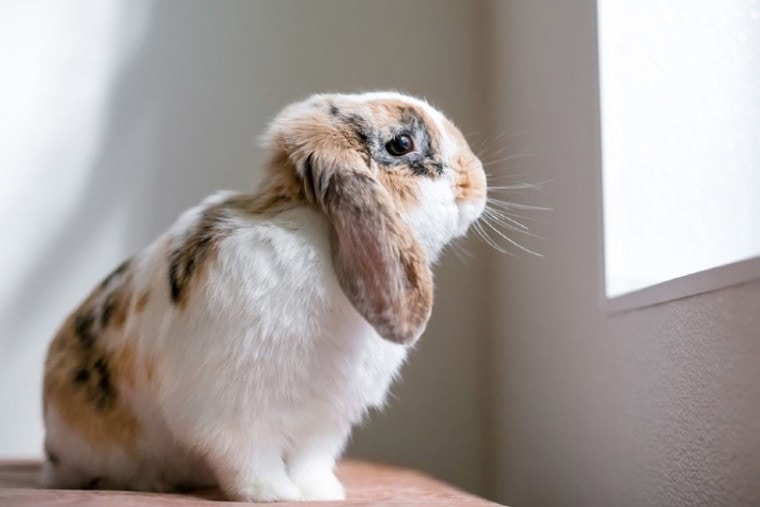
Clinical depression is a medically recognized and common mental health disease in humans. Feelings of sadness and behavioral changes like a lack of motivation to perform regular activities or the disruption of sleeping patterns are a few signs of this disease. Clinical depression can be also caused by chemical imbalances in the brain. Regardless, it can be easily diagnosed due to our ability to verbally express our feelings.
Behavioral changes like those experienced by humans with diagnosed clinical depression are why some rabbit owners may think that their pet is suffering from depression.
Can My Rabbit Suffer From Depression?

Just like any other animal, rabbits are sentient beings and can suffer from mood disorders. Since rabbits are not able to express themselves verbally, it is wiser to avoid evaluating them using humanized adjectives or characteristics and to instead focus on evaluating them from a more animal-friendly perspective. This will help you better understand and provide the needed solutions for your beloved rabbit’s “depression.”
What Are the Signs of “Depression” in Rabbits?
It is common for concerned rabbit owners to deduce that their rabbits are suffering from depression upon observation of one or more of these behavioral changes.
However, all these signs can have several different causes. To be able to better help our beloved furry friends, we need to collect as much information as possible. This will allow us to have a clearer idea of what is going on.
It’s definitively important to address the issue as soon as possible for two reasons:
What Can I Do If My Rabbit Shows Signs of “Depression”?
Once we identify that the rabbit is showing one or more of the aforementioned signs, it is important to start gathering information systematically. Rabbits cannot speak about their emotions, but the change of behavior does have a cause, and we must find out what is going on.

The following guide can help you gather relevant information.
For example, suppose that your rabbit has reduced or lost appetite. Inappetence and anorexia are generally linked to medical conditions. If your rabbit is refusing to eat, it is important to take them to the veterinarian for a health check immediately. You can bring helpful information to the veterinarian by clearly differentiating between the following scenarios.
1. Your Rabbit Refuses to Eat Pellets But Joyfully Accepts Leafy Greens and Hay
When a rabbit discriminates against one food over another, it tends to be a behavioral issue more than a medical condition; however, this needs to be addressed.
The veterinarian will help you formulate a balanced diet that is adequate for your rabbit’s specific needs considering their breed, age, weight, environment, etc. A varied and appropriate diet that is rich in vitamins and nutrients will aid in keeping your rabbit in an optimal health state.
2. Your Rabbit Is Leaving Behind Some of Their Daily Meals
Reduced appetite could be an indicator of an underlying disease. If you have noticed that your rabbit has a reduced appetite, please bring them to the veterinary clinic for a check-up. If the veterinarian finds out that the animal is in good health condition, you can then proceed to address the problem as a behavioral issue without putting your beloved rabbit’s life at risk.
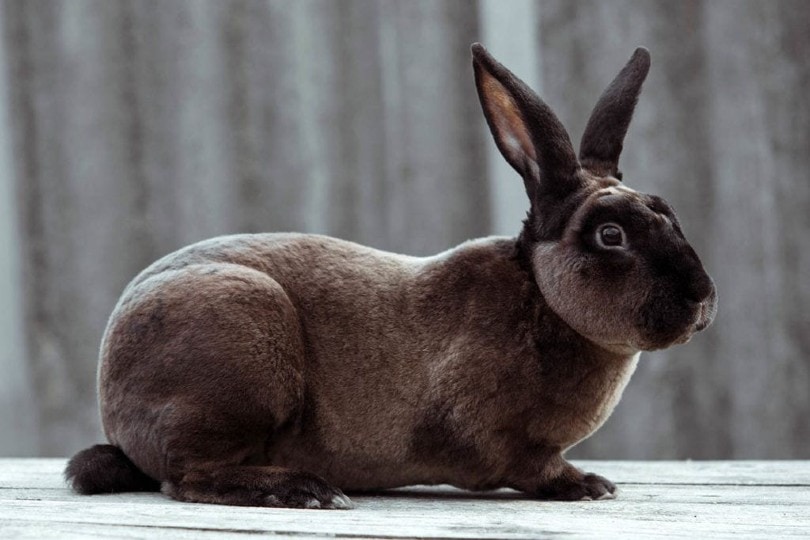
3. Your Rabbit Is Refusing to Eat Any Food at All
The medical term for this condition is anorexia. Anorexia in rabbits should be considered a medical emergency. If your rabbit is refusing to eat any food at all, please take them to the veterinarian as soon as possible. If you noticed today that your rabbit did not eat, please do not wait until tomorrow, when it might be too late. In the case of an anorexic rabbit, the risk of dehydration and organ damage increases as time passes. Rabbit medical cases tend to develop complexity over time, and the resolution treatment options and chances of recovery are reduced accordingly.
As a rule, it is better to visit the veterinarian sooner rather than later. While some diseases have a slower course, others complicate within a matter of a day or two, such as in the case of a rabbit’s gastrointestinal stasis.
Regardless of these three possible scenarios, it is always helpful to try to evaluate if there has been any change with regard to your rabbit’s diet. For example:
The Physical Environment
Identify if there are any alterations in the environment that happened just before or around the time when your rabbit’s behavior started changing.
The Social Environment
4. Your Rabbit Is Less Active Than Usual
Rabbits tend to be more active during the mornings and evenings. Older rabbits tend to gradually become less active. However, if you can identify that your rabbit’s overall activity levels have dramatically and suddenly reduced, this could be a sign that your rabbit is in pain. Take your rabbit for a veterinary consultation and check-up to rule out any underlying medical issues. Once the veterinarian has confirmed that your rabbit is not suffering from an underlying disease or pain, you can address the problem as a behavioral issue.
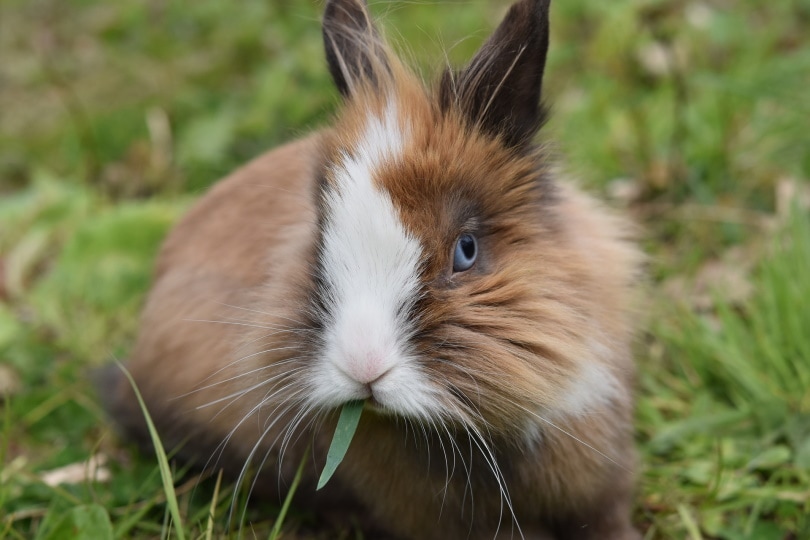
5. Your Rabbit Is Less Curious Than Usual
Rabbits are naturally curious creatures that love to investigate their environment and discover their surroundings. If you notice that your rabbit has lost their curiosity, this could be a sign that they are in pain. Take your rabbit for a veterinary consultation to rule out any underlying health issues. Once the veterinarian has ruled those out, you can address the problem as behavioral.
6. Your Rabbit’s Coat Seems to Be Dirty and Dull
In general, rabbits are clean animals. They spend some time every day grooming themselves to keep their fur clean and healthy. If you have noticed that your rabbit’s fur looks dirty and that they have stopped grooming, this is a clear indicator of an underlying illness. Take your rabbit for a veterinarian consultation to rule out any medical issues. Common problems that cause rabbits to stop grooming include:
In any of these cases, you will have to assist your rabbit in grooming to avoid any secondary skin infections or infestations of parasites. Your veterinarian will recommend an appropriate treatment after determining the underlying cause of your rabbit’s lack of grooming.
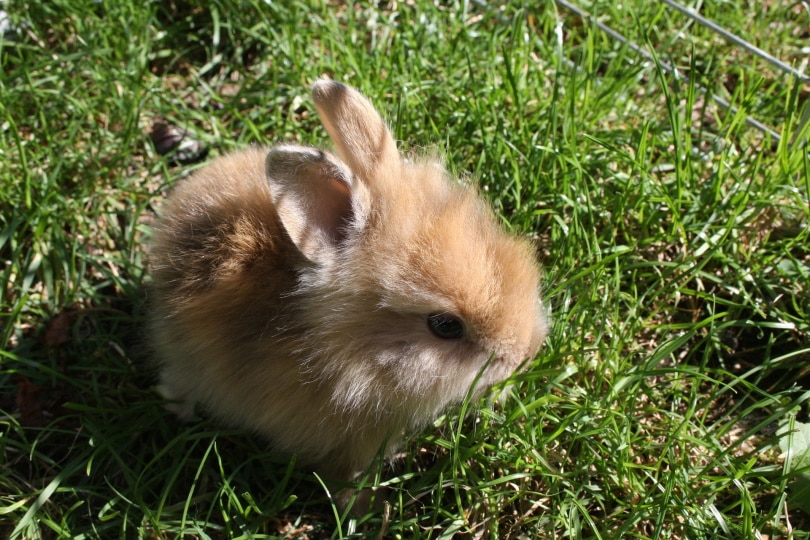
Good Practice Tip for Rabbit Owners
Rabbits will normally groom constantly to keep themselves clean and tidy. However, the grooming behavior makes rabbits susceptible to ingesting their hair and developing hairballs inside their stomach. Hairballs can cause gastrointestinal obstructions or infections. It is a good practice to groom your rabbit with a brush at least once a week to reduce the risk of hairball ingestion.
In addition, approximately every 90 days, rabbits shed a large amount of fur. During the shedding periods, it is recommended to brush your rabbit several times a day.
Rabbits are naturally social animals that enjoy a companion. If your rabbit has suddenly started to present antisocial behaviors toward you or a previously positively socialized companion, this is a clear indication that your rabbit is in pain or suffering illness.
8. Your Rabbit Is Presenting Aberrant Behaviors, Such as Aggression or Self-Mutilations
Aggression between un-spayed male rabbits is a well-recognized behavior that seems to intend the protection of their territory and access to females. Hormonal aggression during springtime has been documented in both male and female rabbits (toward humans and other rabbits) and is believed to be territorial. However, if your rabbit is presenting aggression, this could also be an indicator of pain or fear. Contact your doctor immediately if you notice something in your rabbit that concerns you.
Self-mutilation could be caused by a variety of medical conditions, such as:
In the case of aggression and other aberrant behaviors, it is recommended to take your rabbit for a veterinary consultation and check-up to rule out any underlying medical issues. Once the veterinarian has confirmed that your rabbit is not suffering from disease or in pain, you can address the problem as a behavioral issue.
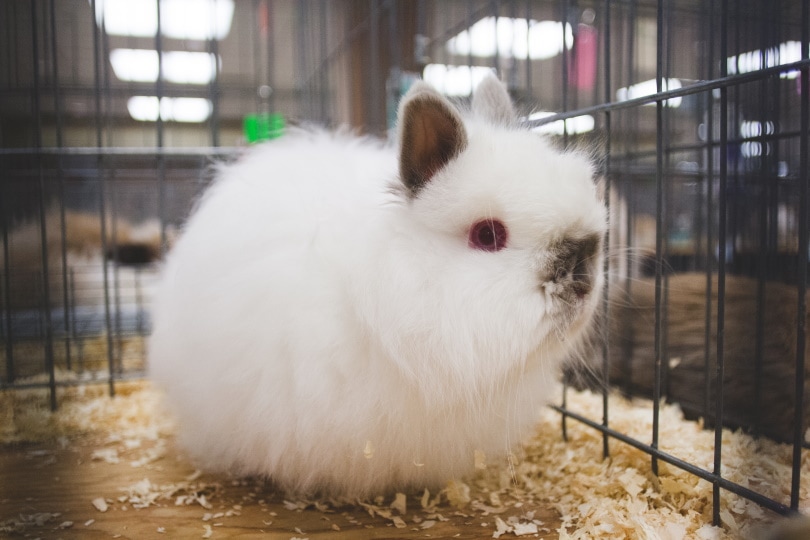
Important Recommendations
Rabbits evolved as prey animals for millions of years, one of the survival strategies of prey animals is masking disease. Rabbits tend to hide signs of the disease for as long as possible. If you notice a change in the behavior of your pet, this could indicate that something is going on.
It’s a good idea to have a previously identified rabbit-savvy veterinarian to whom to bring your rabbit for routine check-ups and in the case of medical issues. Veterinary medicine is an extensive field, and not all vets are specialized in all animal species. The last thing that you want is to lose valuable time trying to find a doctor the day that your rabbit needs emergency assistance.
Veterinary Examinations and Tests
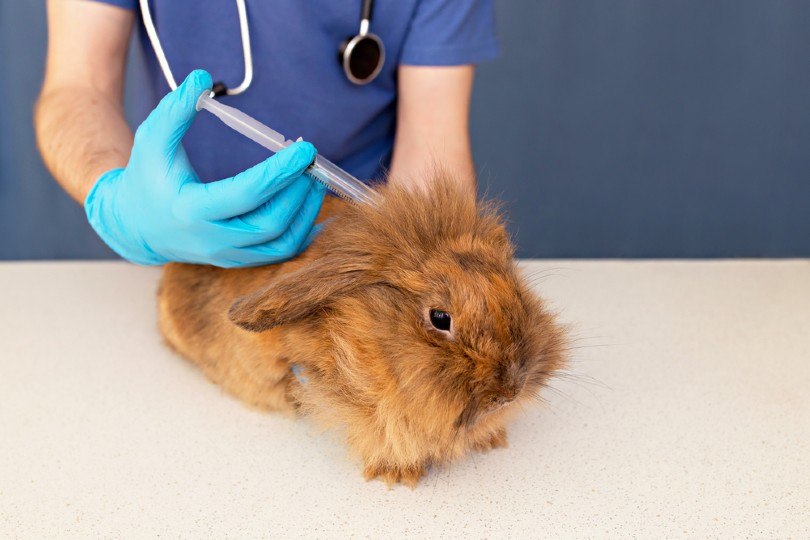
By now, it should be clear if you think that your rabbit is suffering from “depression” and if bringing your rabbit to the veterinarian is the right thing to do.
Collect all the possible details regarding the following queries:
With these details, the veterinarian should be able to build a complete medical history of the case.
They will then proceed to perform a physical examination, checking the nose, eyes, mouth, teeth, ears, body, fur, limbs, and nails of your rabbit. The weight and body temperature of the rabbit will be measured. The veterinarian might also collect a blood sample, a fecal sample, and maybe even a urine sample from your rabbit. In some cases, they might need to perform X-rays.
Treatment Possibilities
If the veterinarian finds out that the cause of the rabbit’s “depression” is pain or an underlying disease, the treatment would be according to the primary cause of the problem. Depending on the specific case, anything ranging from a simple change of diet to oral medications and surgery might be what brings your rabbit back to normal. If the veterinarian rules out any disease, it is safe to start treating the problem as a behavioral issue.
Conclusion
Rabbits make good pets, but they still have basic needs that must be met and considered to keep them healthy and thriving. While rabbits don’t suffer from depression in the same way that humans do, they can still have health issues that affect their mental state and make them seem like they have “depression.” If you’re ever concerned about your rabbit’s actions, take them to the vet right away. They can determine the underlying cause of your pet’s behavior and provide numerous treatment options to get your rabbit back on the road to good health.
Featured Image Credit: Mary Swift, Shutterstock








